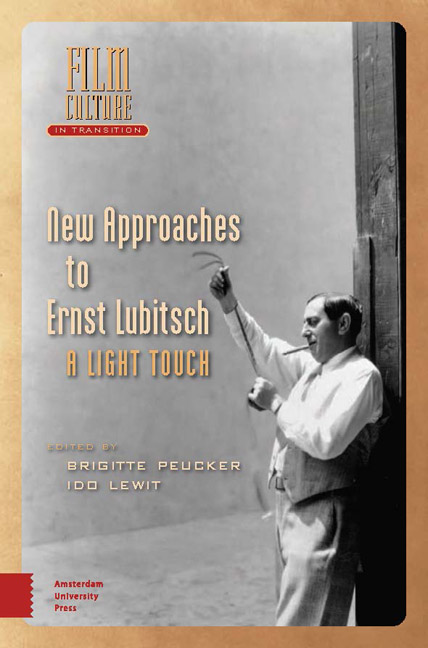10 - Lubitsch, In and Out of Bed
Published online by Cambridge University Press: 16 April 2024
Summary
Abstract
This essay addresses the recurrence of bed imagery in Lubitsch's films. The bed in Lubitsch serves as the nexus of sexual desire, a bringing to life but also a space of death, the point of beginnings but also of endings. The bed is given a temporal dimension, embodying the forces of both past and present while also foreshadowing the potentialities of the future.
Keywords: bed, movement, time, history, gesture
Awakenings
There are many beds in the films of Ernst Lubitsch, almost as many beds as there are doors. In the first image of The Wildcat (Die Bergkatze, Lubitsch, 1921), the doors of a military academy open to reveal a wide shot of a man playing a bugle. Immediately following this is another wide shot, this one of soldiers in bunk beds, the beds lined up against a white wall as the men begin to slowly, resentfully rise due to the bugler's noise. The shots that follow briefly alternate between the bugler continuing to play and one soldier hobbling across the room, shutting the window and then returning to his bed. But the soldier's need to sleep is so intense that he does not climb back into the bed. Instead, he miraculously jumps up into it and makes a landing. Sadly, all of this is for nothing as another door opens, this one inside the barracks, as a commanding officer steps into the room barking orders and the men respond by jumping out of bed and running over to their wash stands. The personal needs of the body to remain horizontal must now give way to the needs of the state. The human figure in Lubitsch will be central to what follows here. I wish to explore this by addressing the recurrence of moments centering around the bed, the bed as a nexus of desire, a bringing to life but also of death, a beginning but also an ending.
For a film of this period to have opened by showing humans awakening would hardly have been a singular gesture. Early in the cinema's history, where the physical and emotional states of human figures were tied to the temporal and mobile forms of cinema, such awakenings could serve as a metaphor for the “awakening” of the film itself.
- Type
- Chapter
- Information
- New Approaches to Ernst LubitschA Light Touch, pp. 195 - 210Publisher: Amsterdam University PressPrint publication year: 2024



